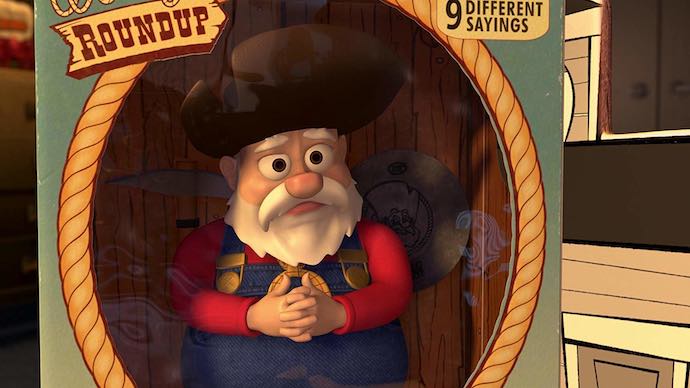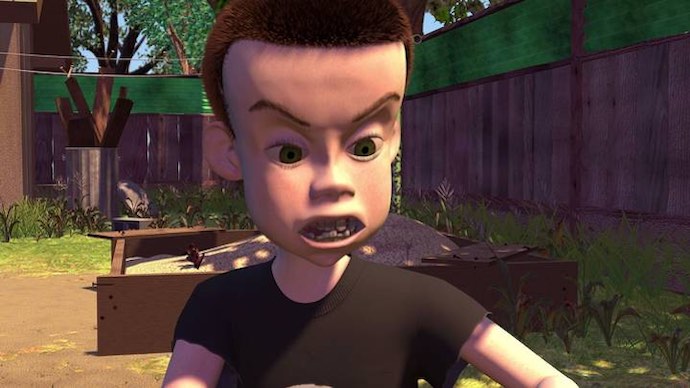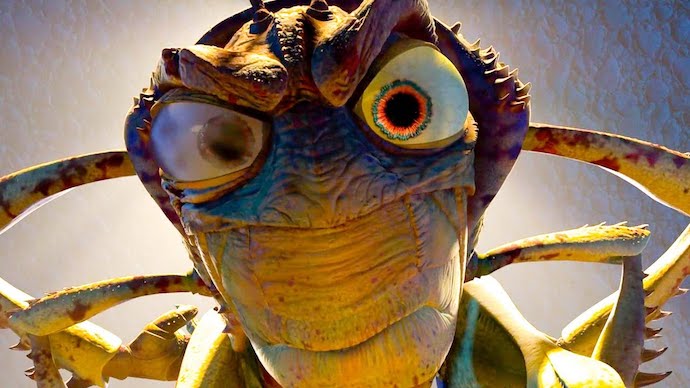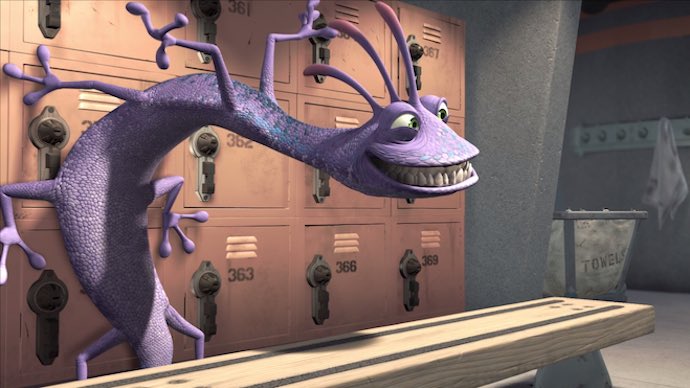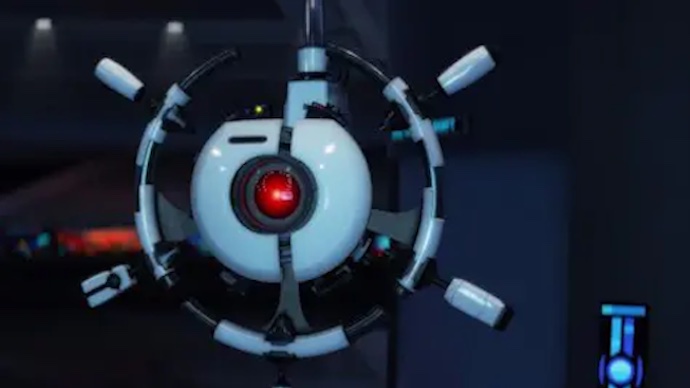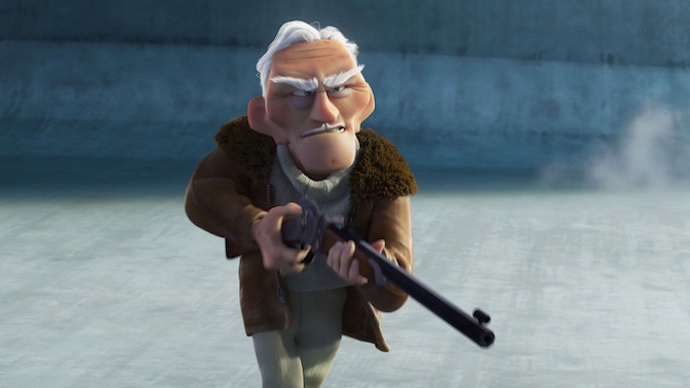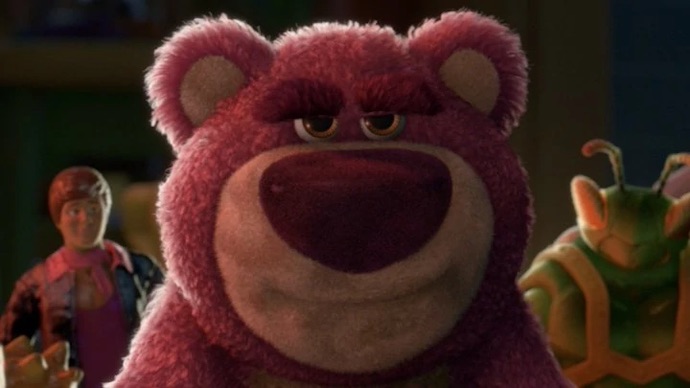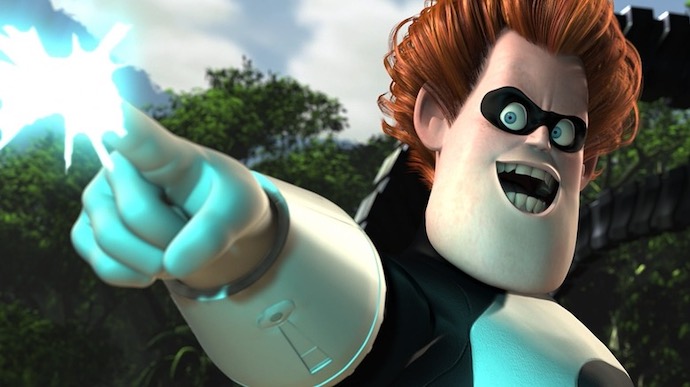The adventures in their films rival those of Disney’s most significant efforts from decades gone by, and today Pixar sits alongside Studio Ghibli as an animation powerhouse renown for quality. That’s because Pixar knows a thing or two about developing a powerful story, and they know that every good adventure story needs a good villain—somebody that makes the protagonist’s journey harder, more challenging, and deeper. Here are our picks for the best Pixar movie villains of all time and why they stand out as formidable opponents in their films.
8. Stinky Pete (Toy Story 2)
Voiced by the irreplaceable Kelsey Grammer, Stinky Pete is the toy that spent too long on the shelf. The heartbreaking tale of Pete’s unpopularity—which caused him to become enraged when every other toy was sold before him—resulted in a state of deep jealousy for the prospector. That jealousy forced Pete into manipulating Woody to accompany him, Jessie, and Bullseye to a Japanese toy museum, which resulted in Woody leaving Andy and the gang behind. It almost worked, too, except Woody soon saw the error of his ways and escaped Pete’s clutches with Buzz. In the end, Pete was deeply jaded by decades of neglect, and that makes him strangely sympathetic.
7. Sid (Toy Story)
Toy Story has a history of featuring brilliant Pixar villains, and none were more overtly evil than Sid, the neighboring child who liked to abuse, mutilate, and destroy his toys. When Buzz and Woody end up in Sid’s hands and face imminent destruction together, they’re forced to set aside their differences and hatch a plan to escape—with Sid’s other toys. It all ends with Woody speaking directly to Sid, terrifying Sid out of his mind. Sid is such a memorable villain because everybody knew a kid like that, who destroyed things for the sake of it… and we all hated that kid.
6. Hopper (A Bug’s Life)
From the moment Hopper lands in the colony to confront the Ants about the lack of food—which Flick has accidentally pushed into the water—he oozed a terrifying presence. The Grasshopper dominated the Ants, forcing them to collect more food for his clan across the remaining harvest season, and he appeared to be an unstoppable force. However, a combination of a bird and the Ants’ collective might brought him down in the end. But even rewatching the film again today, Hopper’s sheer intellect and physical threat remain.
5. Randall (Monsters, Inc.)
The slithering, smarmy, and generally unhinged Randall Boggs made Monsters, Inc. a horror experience for Boo, the adorable child he tries to steal for use in the scream extractor. Given life by the ever-iconic Steve Buscemi, Randall proved to be a formidable villain because he cared little for the people (or monsters) around him and was always open to using any methods he could to impress Waternoose. Randall’s fate is to end up being chased by a family that believes he’s a lizard that got inside their house, and we leave him as they start hitting him with pans. A fitting end for such an unfeeling creature.
4. AUTO (Wall-E)
One could blame AUTO’s programmers for not being thorough enough when they designed the Axiom’s autopilot system. Regardless of who’s at fault, the computer still orders Wall-E to be destroyed along with the plant while Eve is sent to a ward for broken robots. AUTO is programmed to believe that it’s impossible for humans to return to Earth, so he’s driven to quash all evidence that Earth is able to sustain life again. But due to Wall-E and Eve’s efforts, the fearsome machine is shut down during the climactic fight against Captain B. McCrea. On the one hand, AUTO is simply following a directive. Then again, it’s executing decisions with extreme prejudice bordering on malice, and that makes its defeat a fist-pumping moment.
3. Charles Muntz (Up)
First seen as Carl Fredricksen’s childhood hero, Charles Muntz initially appears to be a kindly older man who’s attempting to find the “Kevin” bird so he can bring it back as scientific proof. However, the crazed explorer soon reveals his true nature—as a person who’s killed numerous other people whom he believes are also trying to find the bird before he does. Muntz is a desperate man driven insane by his decades-long hunt, and he tries to kill Carl and Russell before they can get Kevin to safety. Fortunately, he dies after chasing the bird out of Carl’s floating house, leaving him to plunge to his death. He’s a terrifying villain by all accounts and one of Pixar’s darkest characters.
2. Lotso (Toy Story 3)
Lotso (short for Lots-o-Huggin’-Bear) is a plush teddy bear who was abandoned and replaced by his owner. In Toy Story 3, Lotso is a Don Vito-esque character who exerts an iron grip over Sunnyside Daycare. But when Woody and friends first arrive, Lotso initially comes across as a calm and welcoming presence who appears to be a respected elder toy. In due time, Lotso reveals his true nature—as a ruthless operator hiding behind a thinly veiled veneer of kindness, who has been ruler and kingpin of the daycare facility. Lotso’s backstory is a tragic tale of loss and pain, one that leaves him twisted by the rejection he and his friends faced. So, even though the audience hates Lotso for what he tries to do to Woody, Buzz, and the gang, he isn’t beyond empathy.
1. Syndrome (The Incredibles)
Syndrome is a hero fanboy who was torn apart by the rejection of Mr. Incredible, which led him to design weapons in an attempt to destroy the supers for good. In other words, Buddy (Syndrome’s real name) is really just a boy who lost his way and killed numerous heroes to exact revenge on the hero whom he felt ruined his childhood. His evil nature comes to its height when he tries to kidnap Jack-Jack, only to discover the hard way that Jack-Jack doesn’t want to be taken. After dropping Jack-Jack and getting to his plane, Syndrome ends up sucked into a jet engine because of his cape vanity—and he’s minced in an ending that’s as gruesome as any that Pixar has put to screen. Syndrome is Pixar’s most ruthless and fearsome villain, as the boy who wanted to be a sidekick is turned into a rage-fueled human being that pursues his hatred to the point of destruction. Read next: The best Michael Giacchino scores and soundtracks

